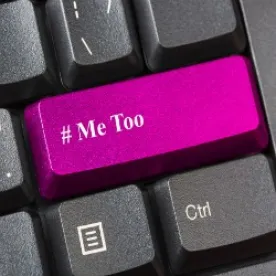On May 9, 2018, Mayor Bill de Blasio signed into law a series of bills addressing sexual harassment in the workplace. Four of these new laws significantly expand the obligations of many New York City-based employers to prevent sexual harassment in the workplace. Specifically, these laws will (1) require that private employers with 15 or more employees conduct annual, interactive sexual harassment training for employees and supervisors; (2) require every employer in New York City to post anti-harassment posters and provide written notice to new hires; (3) extend the statute of limitations to file sexual harassment claims under New York City law from one year to three years; and (4) subject all private employers in New York City (and not only those with at least four employees) to the sexual harassment prohibitions in the New York City Human Rights Law (“NYCHRL”).
Notably, similar (and, in some instances, more expansive) legislation was also recently enacted by the New York State Legislature. New York City employers will have to reconcile these overlapping obligations.
THE DETAILS
Mandatory Sexual Harassment Training
Int. 632-A will require all private New York City employers with 15 or more employees to conduct annual, “interactive” training on sexual harassment for all full-time and part-time employees (including interns) who work more than 80 hours in a calendar year in New York City. The training will be required after 90 days of initial hire for all such eligible employees. The training may be in person or through an online program, and is not required to be facilitated live.
The annual, interactive training for employees must include:
- an explanation of sexual harassment as a form of unlawful discrimination under local, state, and federal law;
- a description of what sexual harassment is, using practical examples;
- a description of the employer’s internal complaint processes, if any, available to employees to address sexual harassment claims;
- a description of the complaint process available through the New York City Commission on Human Rights (“Commission”), the New York State Division of Human Rights (“NYSDHR”), and the federal Equal Employment Opportunity Commission (“EEOC”), including contact information;
- an explanation, with examples, of what constitutes “retaliation” under the NYCHRL;
- information concerning bystander intervention, including resources that explain how to engage in bystander intervention; and
- the specific responsibilities of supervisory and managerial employees in the prevention of sexual harassment and retaliation, and measures that such employees may take to appropriately address sexual harassment complaints.
Unlike the original version of this bill, there is no separate training requirement for supervisors or managers.
Int. 632-A defines “interactive training” as “participatory teaching whereby the trainee is engaged in a trainer-trainee interaction, use of audio-visuals, computer or online training programs or other participatory forms of training as determined by the commission.” The bill further directs the Commission to develop online training modules that would satisfy the training requirement, and to allow for the electronic provision of certification each time an employee completes a training module.
New employees who have received anti-sexual harassment training at a prior employer within the required training cycle are not required to receive additional anti-sexual harassment training at another employer until the next annual training cycle.
Additionally, covered employers would be required to maintain records, for three years, of all training, including a signed employee acknowledgement, which may be signed and kept electronically.
Multi-jurisdictional employers may use a single training program for all employees, so long as the training program meets all of the requirements set forth in the bill.
Int. 632-A will take effect on April 1, 2019. Civil penalties for violations under the NYCHRL can reach up to $125,000, and up to $250,000 if the violation is found to be the result of willful, wanton, or malicious conduct.
New York State recently passed a series of laws addressing sexual harassment in the workplace as well, and those laws included one requiring sexual harassment training. A comparison of the two training-related laws follows:
Interactive Training Content |
NYS |
NYC |
|
Define sex harassment, with specific examples |
Yes |
Yes |
|
Explain federal & state harassment laws |
Yes |
Yes & NYCHRL |
|
Describe employees’ remedies & right of redress |
Yes |
Yes |
|
Detail forums for adjudicating complaints – EEOC & NYSDHR |
Yes |
Yes & Commission |
|
Educate on “bystander” intervention |
No |
Yes |
|
Explain responsibilities of supervisory and managerial employees |
No |
Yes |
|
Define & provide examples of retaliation |
No |
Yes |
New Sexual Harassment Poster
Int. 630-A will require every employer in New York City, regardless of the number of employees, to post a sexual harassment rights and responsibilities poster in English, Spanish, and other languages, as applicable. Employers will also be required to provide new hires with an information sheet on sexual harassment, which the Commission will prepare and make available. Employers may also include such information in an employee handbook. This law will take effect 120 days after enactment, on September 6, 2018.
More Time to File a Complaint
Int. 663-A extends the statute of limitations for filing an administrative charge of gender-based harassment with the Commission from one year to three years from the date of the alleged harassment. This longer statute of limitations applies only to “gender-based harassment” claims. In other words, this provision does not appear to expand the statute of limitations with respect to either discrimination claims (based on gender or any other protected criteria) or any harassment claims based on protected categories other than sex. The statute of limitations for filing a lawsuit (i.e., three years for claims under the NYCHRL) is unaffected. Int. 663-A took effect on May 9, 2018.
Expanded Employer Coverage Under the NYCHRL
Currently, the NYCHRL applies to employers with four or more employees. However, Int. 657-A, which took effect on May 9, 2018, eliminated that employee threshold with respect to gender-based harassment claims, thereby subjecting all New York City employers to potential liability for sex harassment under the NYCHRL.
Other Notable Laws
Several other laws were enacted along with those specifically referenced above, but these other laws do not directly affect private employers. These laws will (1) require that city agencies report annually on sexual harassment within their workplaces and (2) mandate that the Commission develop and disseminate to the public more information on sexual harassment.
What New York City Employers Should Do Now
- Employers with 15 or more employees must prepare to provide interactive sexual harassment training for all employees (including interns) on an annual basis and consistent with the criteria set forth above.
- Review, when they become available, New York City’s model training programs on sexual harassment in the workplace. Coordinate any training, both in terms of content and timing, with the recently passed New York State training requirements.[1]
- Post the new sexual harassment poster, when available, in a conspicuous place.
- Incorporate the published information sheet on sexual harassment into materials disseminated to newly hired employees.
ENDNOTE
[1] The New York State sexual harassment training requirements become effective on October 9, 2018.









 />i
/>i

